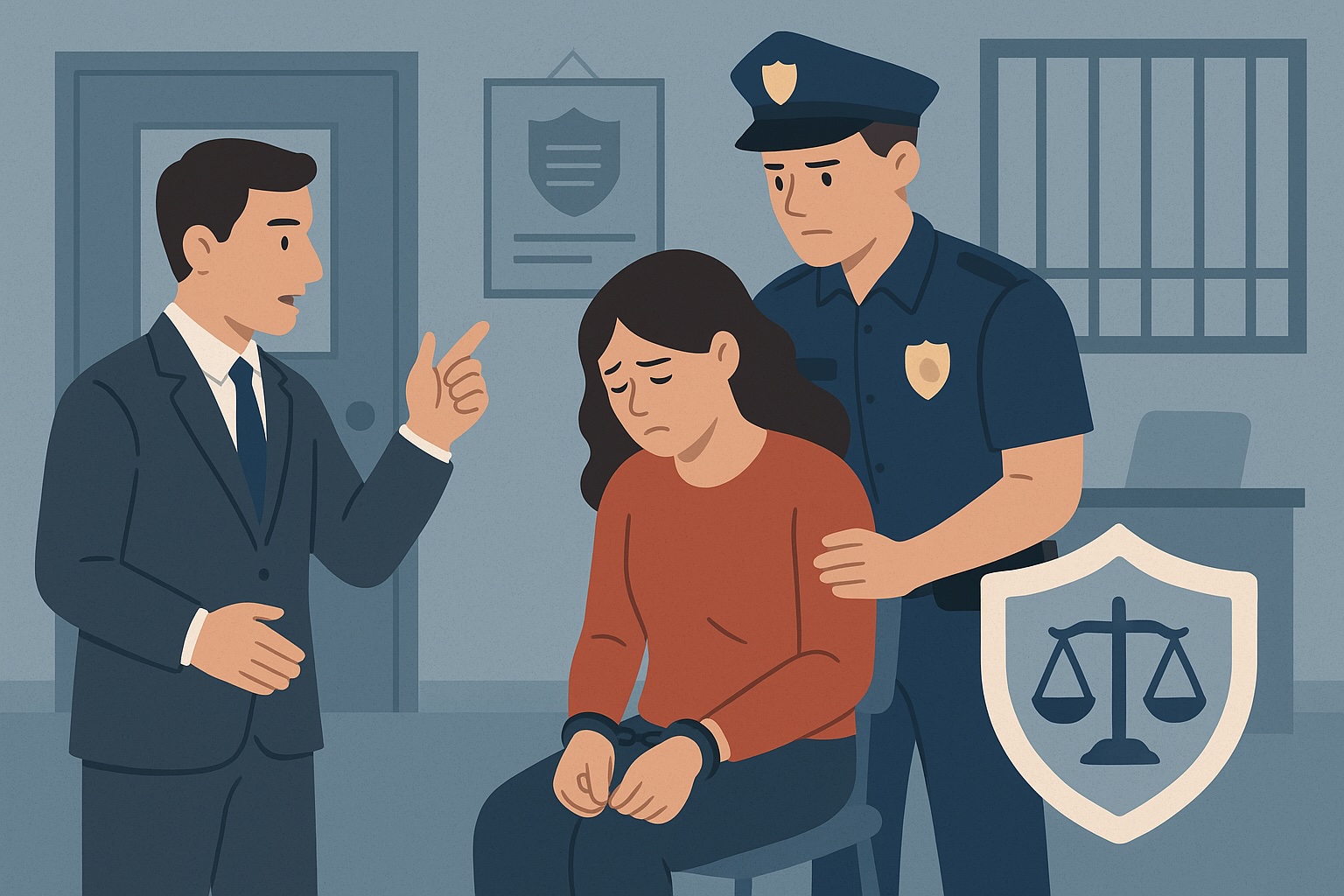Your Legal Rights If You're Arrested for Domestic Assault in Ontario
Being arrested for domestic assault in Ontario is serious—but you still have rights. Learn what to expect, your right to remain silent, access to legal counsel, and how the process works.

If you've been arrested for domestic assault in Ontario, it’s important to know that you have legal rights, even while facing serious criminal allegations. Whether you're innocent or guilty, the law guarantees certain protections during arrest and court proceedings.
This guide explains your rights under Canadian law and what to expect during the arrest process.
🚨 What Is Domestic Assault?
Domestic assault refers to any assault that takes place in a domestic relationship, including:
-
Spouses or romantic partners (past or present)
-
Parents and children
-
Roommates or family members
Domestic assault charges are treated very seriously in Ontario under both criminal law and domestic violence policies.
👮 What Happens During a Domestic Assault Arrest?
If police have reasonable grounds (e.g., visible injuries, statements, 911 call), they can arrest you without a warrant. This includes:
-
Being handcuffed and searched
-
Being taken to a police station
-
Having your photo and fingerprints taken
Police may lay charges even without the victim’s consent—Ontario follows a “mandatory charge” policy.
🧾 Your Legal Rights Upon Arrest
Under the Canadian Charter of Rights and Freedoms, you have the following rights:
1. Right to Be Informed of the Charges
Police must clearly tell you:
-
That you are under arrest or detention
-
What you are being charged with
2. Right to Remain Silent
You do not have to answer police questions. Anything you say can be used against you in court.
3. Right to Speak with a Lawyer
You can:
-
Contact a lawyer of your choice
-
Ask for free legal advice from Duty Counsel
-
Speak to Legal Aid Ontario at: 1-800-668-8258
Police must provide access to a telephone in private and delay questioning until you speak with legal counsel.
4. Right to Reasonable Bail Hearing
You have the right to appear before a justice of the peace within 24 hours (usually sooner) to determine bail conditions.
🧷 Common Bail Conditions for Domestic Assault
If released on bail, you may be subject to:
-
No-contact orders with the alleged victim
-
Prohibition from returning to the shared home
-
Mandatory check-ins or supervision
-
Curfew or travel restrictions
Violating bail conditions is a criminal offence.
❌ What You Should NOT Do
-
❌ Don’t try to contact the victim, even to “apologize” or explain
-
❌ Don’t ignore bail conditions
-
❌ Don’t make statements to police without a lawyer present
⚖️ What Happens After Arrest?
- Police lay charges
- You appear in court (usually within 1–3 days)
- Crown attorney decides whether to proceed
- You may apply for legal aid or hire a lawyer
- You enter a plea and move toward trial or resolution
You could also be referred to a diversion program in minor cases, or face trial if serious.
📌 Summary: Rights When Arrested for Domestic Assault in Ontario
-
✅ You have the right to remain silent
-
✅ You have the right to a lawyer
-
✅ Police must inform you of your charges
-
✅ You are entitled to a bail hearing within 24 hours
-
✅ You should never breach bail or contact conditions
🛠️ Where to Get Help
-
Legal Aid Ontario – 1-800-668-8258
-
Duty Counsel at Court – Free advice during first appearances
-
Criminal Defence Lawyer Referral Service – lsuc.on.ca
-
John Howard Society of Ontario – johnhoward.on.ca
-
Legal clinics – Assist with bail hearings and disclosure review
Frequently Asked Questions (FAQs)
1. The police want me to give a statement. Should I?
No. It is almost always in your best interest to exercise your right to remain silent until you have spoken with a lawyer. Anything you say can be used against you, and you may unintentionally harm your case. Politely tell the police, "I am exercising my right to remain silent, and I wish to speak with my lawyer."
2. What is the most important thing to do if I am arrested for domestic assault?
The most important thing to do is to immediately ask to speak with a lawyer. Do not answer any police questions until you have received legal advice. This is your constitutional right.
3. What is a "no-contact" order?
A no-contact order is a standard condition of bail in a domestic assault case. It means you cannot communicate directly or indirectly (through another person) with the alleged victim. You also cannot go to their home, work, or school. Breaching this order is a separate criminal offence.
4. My partner wants to "drop the charges." Can they?
No. Once police lay charges, the case is controlled by the Crown Attorney, not the alleged victim. Due to Ontario's mandatory charging and pro-prosecution policies for domestic violence, the Crown will almost always proceed with the case if there is enough evidence, regardless of the complainant's wishes.
5. What is the difference between being arrested and being charged?
Arrest is the act of police taking you into custody. Charging is the formal legal process of accusing you of a specific crime. You can be arrested and later released without being charged if the police decide there is not enough evidence.
6. Can I get Legal Aid if I'm charged with domestic assault?
Yes. If you have a low income, you may qualify for a legal aid certificate to hire a criminal defence lawyer. If you are in custody, you have the right to speak with Duty Counsel, a free lawyer available at the courthouse, for advice regarding your bail hearing.
